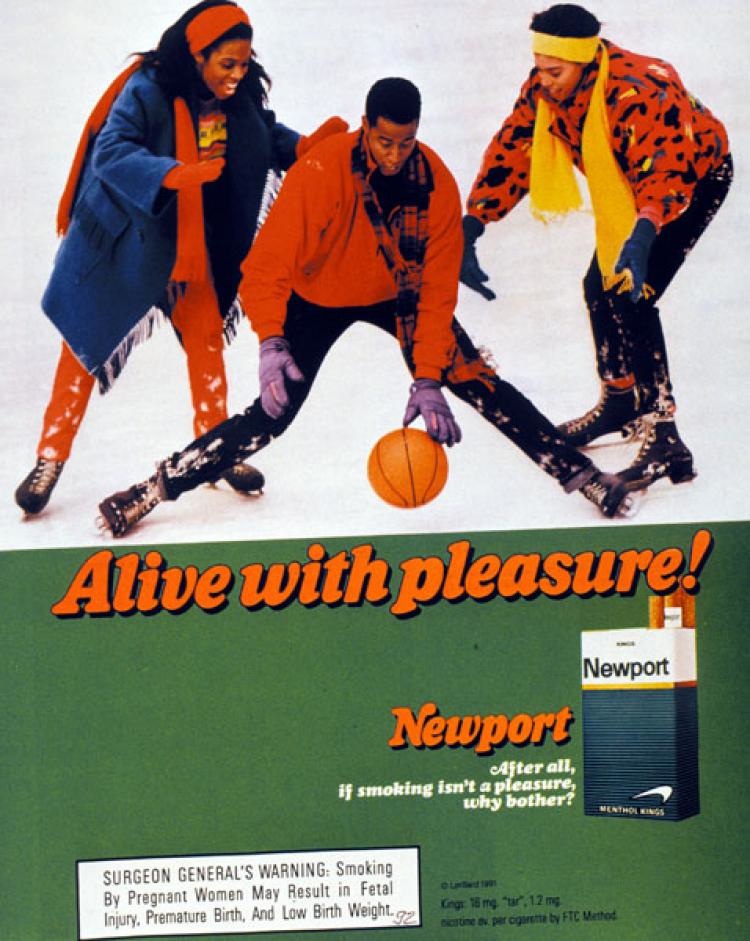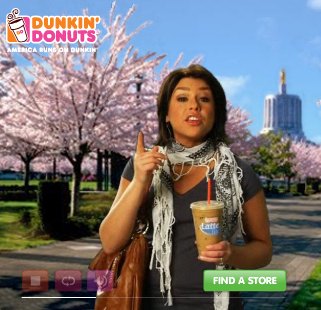Campaign for Tobacco-Free Kids Tries to Explain "Menthol Loophole" in FDA Bill
Submitted by Anne Landman on
 The Campaign for Tobacco-Free Kids, who negotiated with Philip Morris to draft the bill to allow the
The Campaign for Tobacco-Free Kids, who negotiated with Philip Morris to draft the bill to allow the

Submitted by Anne Landman on
 The Campaign for Tobacco-Free Kids, who negotiated with Philip Morris to draft the bill to allow the
The Campaign for Tobacco-Free Kids, who negotiated with Philip Morris to draft the bill to allow the
Recently while browsing the Web I came across UrbanDictionary.com, which is sort of a wiki of contemporary slang. I found some of the newer words listed there amusing, like "hobosexual" (the opposite of metrosexual; someone who cares little about their looks), "consumerican," ("a particularly American brand of consumerism"), and "wikidemia" ("an academic work passed off as scholarly yet researched entirely on Wikipedia").
Submitted by Anne Landman on
 Dunkin' Donuts pulled an online ad for frozen lattes featuring domestic maven Rachael Ray after receiving complaints from right-wing bloggers, including conservative FOX News commentator
Dunkin' Donuts pulled an online ad for frozen lattes featuring domestic maven Rachael Ray after receiving complaints from right-wing bloggers, including conservative FOX News commentator
Submitted by Diane Farsetta on
"The catastrophic earthquake that rocked China's Sichuan province has changed the entire tenor of the coming Olympics" -- and the shift is good for beleaguered Olympics sponsors.
Submitted by Diane Farsetta on
 The pharmaceutical company Pfizer "is preparing an advertising and public-relations campaign to counter concerns about its antismoking drug Chantix, once trumpeted as a potential billion-dollar-a-year blockbuster." So far, Pfizer has "run ads in five major newspapers in which its medical director explains Chantix's risk-benefit balance." The drug company will soon "start hosting ro
The pharmaceutical company Pfizer "is preparing an advertising and public-relations campaign to counter concerns about its antismoking drug Chantix, once trumpeted as a potential billion-dollar-a-year blockbuster." So far, Pfizer has "run ads in five major newspapers in which its medical director explains Chantix's risk-benefit balance." The drug company will soon "start hosting ro
Submitted by Diane Farsetta on
The WPP Group's online advertising firm Bridge Worldwide offers its clients what it calls "marketing with meaning." For ConAgra, the firm created the "Start Making Choices" website, which "conveys nutrition, exercise and other well-being tips from cardiologist James Rippe ...
Submitted by Bob Burton on
In early April, the global oil company Chevron announced that it has entered into a five-year deal with the foundation created by the professional golfer, Tiger Woods. Woods proclaimed that "Chevron has a track record and a commitment to bettering the communities where they operate." Chevron's record, such as its partnership with the Burmese military dictatorship on the Yandana gas pipeline is "certainly nothing with which Woods should want his name attached," writes Dave Zirin in The Nation.
Submitted by Anne Landman on
 When a patient checks into a hospital or goes to see a doctor, they are typically handed a booklet called "Notice of Privacy Practices" and are asked to sign a document acknowledging that they received the information. Patients assume that these "privacy practices" are in place to protect their personal information and that doctors and hospitals will keep their information in strictest confidence.
When a patient checks into a hospital or goes to see a doctor, they are typically handed a booklet called "Notice of Privacy Practices" and are asked to sign a document acknowledging that they received the information. Patients assume that these "privacy practices" are in place to protect their personal information and that doctors and hospitals will keep their information in strictest confidence.
We recently received an email from someone who asked, "What is the difference between a 'product placement' and a 'video news release' (VNR)? Is a VNR a type of product placement?" Since other people might have the same question, I thought I'd post my answer here. On SourceWatch, we have articles about both topics. As our article about video news releases explains, a VNR is a piece of video that is created (typically by a public relations firm on behalf of a paying client) and designed to look like a news segment for broadcast by TV news programs. It deceives audiences by creating the impression that the "news" they see on TV was produced by independent reporters, when in fact VNRs are promotional pieces designed to sell something for a client whose identity is not always disclosed. TV news shows often deny that they use VNRs, but Diane Farsetta, our senior researcher, has done extensive research in which she found numerous examples of the practice. "Product placement" is a separate but similarly sneaky practice of getting television programs and movies to display a company's product within their program.
Submitted by Sheldon Rampton on
According to the Nielsen Company, product placements on broadcast television increased 39 percent during the first quarter of 2008. All told, there were 117,976 brand occurrences on cable and broadcast networks in the first three months of the year. The show with the most product placements was NBC's "The Biggest Loser," followed by "American Idol" on Fox, "The Apprentice" on NBC, "Deal or No Deal" on NBC, and "Extreme Makeover Home Edition" on ABC.
Center for Media and Democracy (CMD)
520 University Ave, Ste 305 • Madison, WI 53703 • (608) 260-9713
CMD is a 501(c)(3) tax-exempt non-profit.
© 1993-2025